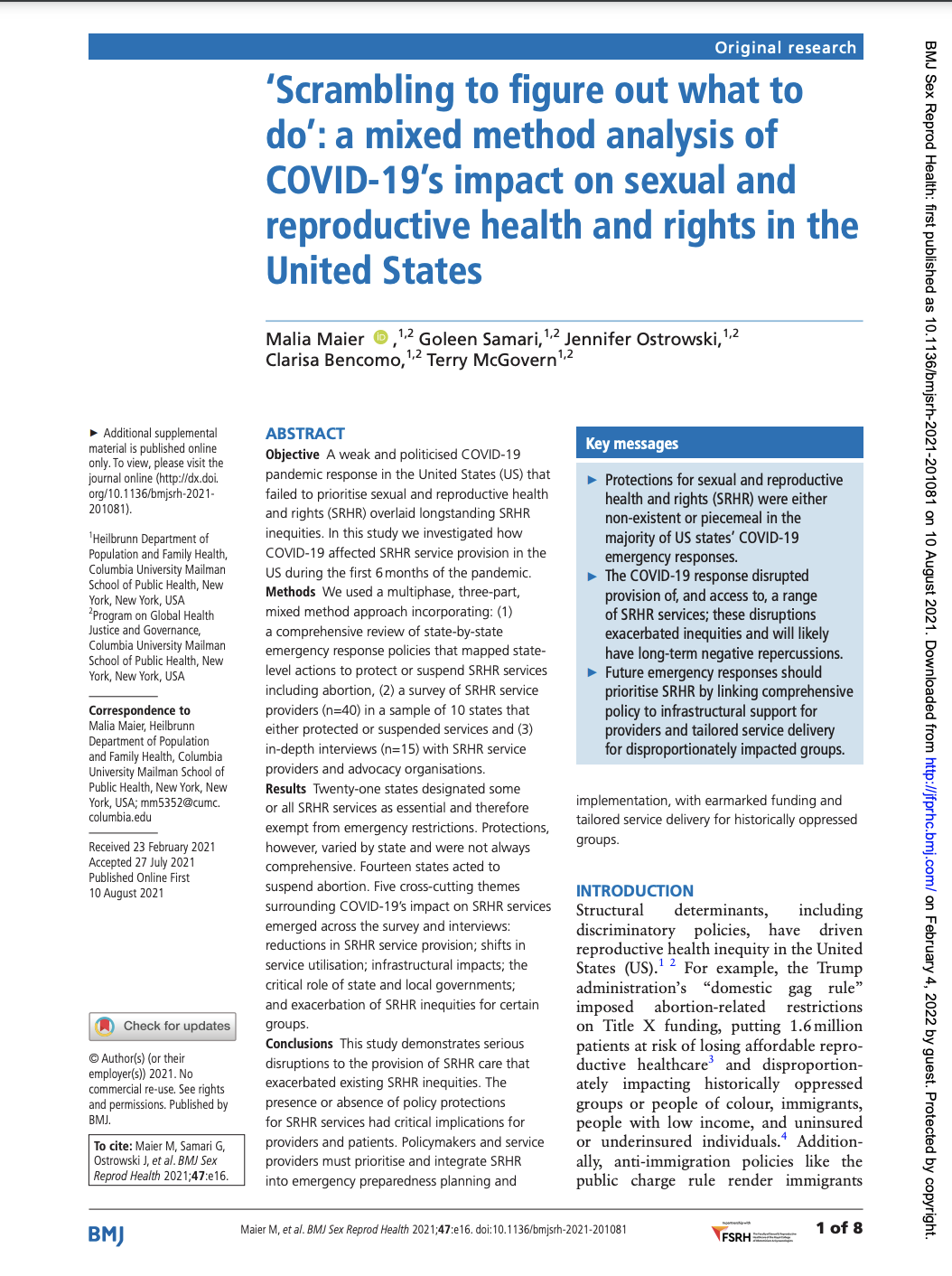Abstract
Objective A weak and politicised COVID-19 pandemic response in the United States (US) that failed to prioritise sexual and reproductive health and rights (SRHR) overlaid longstanding SRHR inequities. In this study we investigated how COVID-19 affected SRHR service provision in the US during the first 6 months of the pandemic.
Methods We used a multiphase, three-part, mixed method approach incorporating: (1) a comprehensive review of state-by-state emergency response policies that mapped state-level actions to protect or suspend SRHR services including abortion, (2) a survey of SRHR service providers (n=40) in a sample of 10 states that either protected or suspended services and (3) in-depth interviews (n=15) with SRHR service providers and advocacy organisations.
Results Twenty-one states designated some or all SRHR services as essential and therefore exempt from emergency restrictions. Protections, however, varied by state and were not always comprehensive. Fourteen states acted to suspend abortion. Five cross-cutting themes surrounding COVID-19’s impact on SRHR services emerged across the survey and interviews: reductions in SRHR service provision; shifts in service utilisation; infrastructural impacts; the critical role of state and local governments; and exacerbation of SRHR inequities for certain groups.
Conclusions This study demonstrates serious disruptions to the provision of SRHR care that exacerbated existing SRHR inequities. The presence or absence of policy protections for SRHR services had critical implications for providers and patients. Policymakers and service providers must prioritise and integrate SRHR into emergency preparedness planning and implementation, with earmarked funding and tailored service delivery for historically oppressed groups.
Maier M, Samari G, Ostrowski J, et al ‘Scrambling to figure out what to do’: a mixed method analysis of COVID-19’s impact on sexual and reproductive health and rights in the United States BMJ Sexual & Reproductive Health 2021;47:e16.






